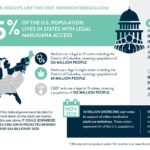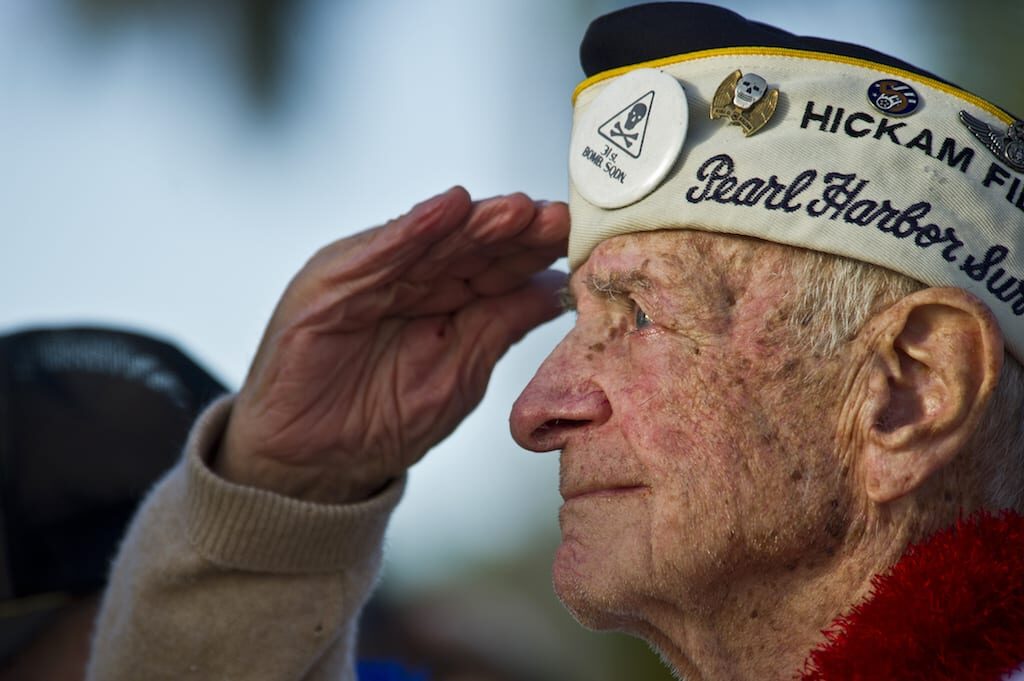Veterans Call on Trump to Reschedule Cannabis

Top Performing Ancillary Markets
March 5, 2017
Did you know? 95% of the U.S. Population Lives in States with Legal Marijuana Access
March 5, 2017By J.J. McCoy, Senior Managing Editor for New Frontier Data
A significant indication of the growing societal acceptance of cannabis may be found in a letter sent from one of the country’s most traditionally conservative veterans’ groups to President Trump. The American Legion and its 2.4 million members represent the largest U.S. veterans’ organization, and it is requesting a meeting with Trump to discuss critical veterans’ issues including alarming rates of opiate addiction and suicide.
Last December, the Legion hosted a meeting with the Trump administration’s incoming transition team and initiated a call to action for supporting research about medical marijuana. Specifically, they sought for the Drug Enforcement Administration to reclassify cannabis from a Schedule I drug to Schedule III, to enable easier access to pure strains for cultivation to provide quantifiable research and statistics regarding the medical benefits of cannabis.
While the group is not advocating adult use legalization, Louis Celli, the Legion’s national director of veterans affairs and rehabilitation, recently told Politico, “there is overwhelming evidence that it has been beneficial for some vets. The difference is that it is not founded in federal research because it has been illegal.”
As detailed in New Frontier Data’s “The Cannabis Industry Annual Report: 2017 Legal Marijuana Outlook,” in the chapter “Cannabis Presents New Opportunities to Treat At-Risk Veterans,” we noted how “medical cannabis may be particularly useful for veterans since many of the conditions for which cannabis is recommended are highly prevalent with the veteran community. The Veterans Administration (VA) reports that chronic pain, the most commonly cited qualifying condition, affects veterans at nearly twice the rate of Americans at large, with 60% of veterans who served in the Middle East and 50% of older veterans living with chronic pain. The VA estimates that between 11%-20% of veterans returning from the Middle East, and between 15-30% of Vietnam veterans, suffer from PTSD, a condition that is increasingly being added to the list of qualifying conditions in medical markets across the country.”
“We need solutions,” Nick Etten, a former Navy SEAL who runs the Veterans Cannabis Project, a health policy organization, told Politico. “We need treatment that works. We need treatment that is not destructive. The VA has been throwing opiates at veterans for almost every condition for the last 15 years. You are looking at a system that has made a problem worse the way they have approached treatment.”
While the group stops short of advocating legalization for adult use, it strongly advocates clinical research about cannabinoid receptors and remedies for PTSD. So long as federal regulators maintain cannabis’ Schedule I categorization (which includes drugs like heroin and LSD), with few exceptions it cannot even be studied for therapeutic purposes. What relatively rare studies have been conducted after researchers navigate bureaucratic obstacles rely on a single, government-sponsored lab to provide the cannabis.
“We desperately need more research in this area to inform policymakers,” Sue Sisley told Politico. A psychiatrist at the Scottsdale Research Institute in Arizona, Sisely currently runs one of the only known cannabis studies focusing on veterans suffering from PTSD. While she says she does not know whether cannabis will prove to be helpful for PTSD, she nevertheless seeks to establish “the most objective data published in peer-reviewed medical journals.”
“Our study resolution passed last year calls for all forms of cannabis studies,” Sisley reminded during a phone interview on Friday. The resolution can be found here.

J.J. McCoy
J.J. McCoy is Senior Managing Editor for New Frontier Data. A former staff writer for The Washington Post, he is a career journalist having covered emerging technologies among industries including aviation, satellites, transportation, law enforcement, the Smart Grid and professional sports. He has reported from the White House, the U.S. Senate, three continents and counting.




